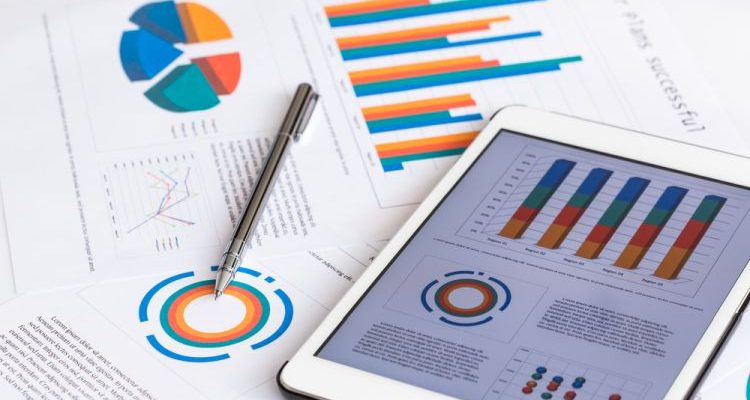When Are Second Opinions Useful For PV Systems?
Basically, the question arises as to which expert opinions are customary for PV systems and to what extent their preparation offers added value for the customer.
We would like to concentrate here on the most common technical expert opinions.
Which expert opinions are available for PV plants
Often, the question of whether an expert opinion is required is already specified by the financing bank or the investor.
Banks in particular usually have clear guidelines on the extent to which independent expert opinions must be available for the approval of the financing of a PV system. This includes, in particular, bankable yield reports as a basis for calculating the profitability of a plant.
The yield report analyzes the specific yields to be expected during the operating period on the basis of long-term irradiation data at a location and the specific configuration of the system. The higher the specific yields, the more economically a plant can be operated and the more favorable the credit conditions can be.
Often the yield calculations are part of the planning of a plant by the general contractor (GU). Unfortunately, experience has shown that these often contain overestimated yields because decisive parameters such as loss factors are not taken into account. These include, for example, losses due to pollution, snow cover, shading by adjacent trees or buildings, and many more.
Therefore, many banks reduce the submitted calculations of the general contractor by a certain percentage or insist on one or more independent reports for larger plants. Especially for projects of 10 MWp and larger, it has become common practice for most banks to demand several independent expert opinions. This is due to the fact that even reputable expert opinions have a certain range of variation in their results.
In addition to yield reports, reports on the technical inspection of the plant are relevant. Either an inspection is carried out in the course of the acceptance of a plant or in the context of a sale. The aim of these expert opinions is to determine and evaluate the status of the projects from a technical point of view.
After completion, this is particularly important in order to uncover possible defects and to have them remedied, if possible, before the final instalment is paid to the general contractor or at least within the product warranty. If projects are sold after a few years of operation, the condition may have changed. An up-to-date review of the asset’s valuation therefore makes sense in this case as well.
Basically, both of the described assessments are part of a general technical due diligence to evaluate the overall project risk. In addition, there are usually evaluations of the components and contracting parties and the contractual framework from a technical point of view.
If valid operating data of the plant are already available, statements about the performance can also be made. Here, the calculation models, which have already been created in the context of a yield assessment, are “fed” with actual irradiation data for the respective location. The result is the target yield value of a plant for a specific period. This can then be compared directly with the meter values of the plant. This ensures that fluctuations in yield due to weather conditions are taken into account accordingly.
In principle, periods of at least one operating year are considered reasonable. Often, however, performance analyses must be carried out only a few months after the plant has been commissioned in order to obtain additional security before payments are made to the installer.
This is possible in principle, but requires minimum irradiation conditions during the evaluation period. Periods in the winter months with corresponding, low irradiation conditions are therefore associated with higher error tolerances in the statement of the evaluation.
In some projects, specific expert opinions are added, which are also part of a comprehensive project evaluation. These include, for example, structural, glare, soil and fire protection reports, to name the most important ones.
When does it make sense to have a second expert opinion prepared?
As a general rule, a new expert opinion is always advisable if there are doubts about the statement of an initial expert opinion or if the condition of the plant has changed significantly.
If plants change hands after several years, a technical inspection should be carried out in any case, even if a valid expert opinion was already drawn up during the original commissioning. This can reveal, for example, whether the required maintenance of the plant has been carried out correctly and what condition the plant is now in. Defects can be quickly and reliably identified, independently documented and reported to the previous owner.
The inspection also ensures that the plant still meets the required standards in order to be operated safely and in compliance with standards.
In the case of yield assessments, better conditions can often be obtained from financing banks if more comprehensive and reliable assessments are prepared in addition to the PV-SOL calculations usually performed by JVs for smaller project sizes up to <750 kWp.
Unfortunately, the capacities of this basically also good simulation software are in most cases not exhausted by the JVs. This unfortunately leads to the fact that the confidence in such calculations is not particularly high. Specific yields of over 1,000 kWh/kWp for east-west oriented systems in Germany are unfortunately not uncommon in some of these expert opinions. A value that currently cannot be realistically achieved in a long-term view for such plant configurations and thus raises false expectations among some inexperienced investors.
Whether and to what extent a second expert opinion is necessary and useful depends on the respective circumstances. Independent, individual advice can provide clarity here and identify the benefits. Ultimately, the associated costs must be justified by added value for the client.
This is a free translation. To read the original article in German: click here.
About Dr. Daniel Faltermeier:
Dr. Faltermeier is founder and managing partner of helioconsult GmbH. As an independent expert and consultant, Dr. Faltermeier has many years of experience in the field of renewable energy. helioconsult GmbH provides independent services worldwide for the entire life cycle of renewable energy projects with the aim of minimizing technical and financial risk. The focus is on consulting and support in the field of solar, wind energy, battery storage and mobility solutions.





